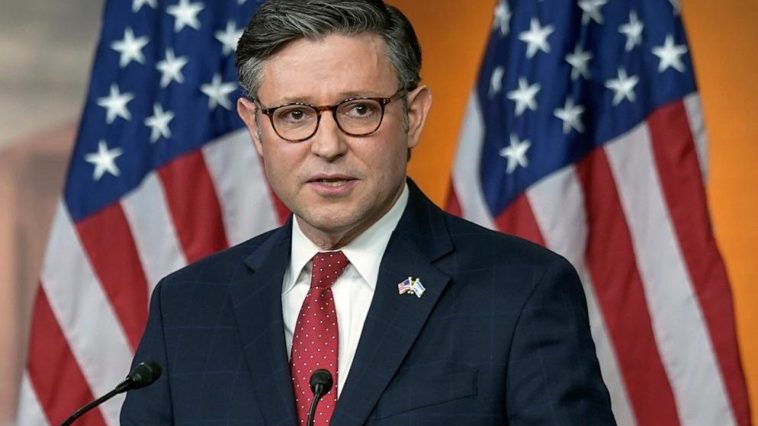LISTEN HERE:
Late Tuesday, the House of Representatives effectively dodged a likely pre-Christmas federal shutdown through the successful passage of a vital bill. Solid bipartisan support ensured the bill received a comfortable 336-95 victory, exceeding the two-thirds majority required.
Only two dissenters emerged from the Democratic ranks, while 93 Republicans voiced their opposition.
The bill will now make its way to the Senate, still under Democratic leadership. Senate Majority Leader, Chuck Schumer, D.N.Y., has signaled his readiness to act promptly on this matter.
Up until this point, Congress had extended the 2023 fiscal year government funding until November 17, hoping to afford ample time to finalize and pass their 12 separate appropriations bills, which would establish the forthcoming year’s expenditure.
Tuesday’s legislation represented a critical milestone for newly-minted House Speaker, Mike Johnson, R-La. Johnson assumed control of his new role merely weeks after his predecessor, Kevin McCarthy, R-Calif., was relieved of his duties.
Interestingly, while Democrats outnumbered Republicans in supporting the bill, Johnson made notable inroads with his GOP Conference, convincing a majority to back the bill.
Johnson’s strategy, made public over the weekend, divides governmental funding into two different stages with distinct targets. This allows for a more coordinated and deliberate allocation of resources.
This approach is intended to circumvent Congress’s need to lump together its dozen appropriations bills into one colossal ‘omnibus’ bill. Such a maneuver was seen last year when the Democratic majority in both the House and Senate utilized it, drawing criticism from Republicans.
Johnson’s bill first addresses traditionally less contentious appropriations bills, including those dealing with military construction and Veterans Affairs, Agriculture, Energy and Water, Transportation, and Housing and Urban Development by the 19th of January. The outstanding eight expenditure bills will need handling by the 2nd of February.
However, some conservative members of Johnson’s GOP conference have objected to the bill. Their complaints mainly center around the absence of any spending reductions and traditional conservative policy initiatives.
Despite this, the bill has received implicit approval from prominent Senate leaders, suggesting that Johnson’s inaugural legislative act as House Speaker might stave off a government closure if President Biden concurs.
Johnson’s strategy to bifurcate funding timelines did raise apprehensions among Democrats initially, yet the majority of them took solace from the fact they would not be put in a position to sign off on a CR that would exceed fiscal year 2023’s funding thresholds. Johnson’s approach, while initially questioned, has been welcomed for its capacity to potentially avoid government stalemates.



